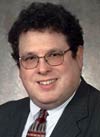 Wisconsin Lawyer
Wisconsin Lawyer
Vol. 79, No. 7, July
2006
Profiles in Pro Bono
Lawyers who provide pro bono legal services to low-income people do
so for a variety of reasons and in a variety of ways.
Jumping Right In
 |
| Perhach |
Thanks to attorney Katie Perhach, a Milwaukee woman
prevailed in gaining guardianship of her two young nieces after their
mother was killed in a car accident and their father, the driver, landed
in jail.
Perhach also was responsible for winning asylum for a Senegalese
woman, who otherwise would have been forced to return to Senegal, where
she would have suffered a 100-lash beating from her male relatives for
having a child out of wedlock with a non-Muslim man in the United
States.
These are just two examples of Perhach's pro bono work, which won her
a State Bar Pro Bono Award in May 2006.
Perhach became active in pro bono at the beginning of her law career
six years ago at Quarles & Brady in Milwaukee. Her reasoning is
simple. "If you have the ability to help people, you should," she
says.
Her first pro bono matter was a criminal appeal. "I was supervised,
but I handled a lot of it myself," she recalls. "I got the chance to
argue in front of the Seventh Circuit [of the U.S. Court of Appeals] in
my first year" as an attorney.
She also has long been a member of the Quarles & Brady legal team
that covers the Restraining Order Clinic at the Milwaukee County
Courthouse for two afternoons each month, allowing the clinic's staff to
do internal training. And she volunteers with Legal Action's Volunteer
Lawyers Project by representing domestic abuse survivors at permanent
injunction hearings.
Through her pro bono work, Perhach has gained broader experience in
areas of law outside her focus on commercial litigation. "We help people
here on a day-to-day basis," she says. "But the pro bono cases can be
life-and-death situations or family matters. You really can make a
difference in people's lives."
Perhach offers a little advice for young lawyers who may feel they're
too green to take on serious pro bono matters. For starters, find a
network of people to turn to for advice. "And don't be shy," she adds,
"about asking questions of people who practice in your community. There
are resources out there. And people are more than happy to help you, if
you ask."
Lifting Burdens
 |
| Nixon |
Tim Nixon has practiced in Green Bay for only five
years, but already he's gained a reputation for being a go-to guy for
legal help for people in need. Before coming to Godfrey & Kahn's
Green Bay office, he was in the firm's Madison office for 10 years.
Social service agencies, churches, and other organizations in Green
Bay steer people in Nixon's direction. For example, on a recent
afternoon he was headed to a local church, at the behest of the
minister, to talk with a church member who faced racial
discrimination.
The people he helps "don't have access to legal services," Nixon
says, "and they're desperate. Sometimes the problem is easy to fix, if
you know where to call and what to say."
Other matters are more complex. Last fall Nixon helped a Louisiana
couple, Gerri and Steven Duquette, who fled their home after Hurricane
Katrina to live with Steven's parents in Green Bay. The Duquettes were
unsure if they'd ever be able to return home.
In the meantime, they faced mortgage and car payments. Paying the
mortgage was especially worrisome. The lender granted a three-month
suspension, but at the end of that time, four payments were due in a
lump sum. With no income coming in, "we were afraid we'd lose the
house," Gerri says. "We didn't know what to do."
Someone at her mother-in-law's office suggested calling the State Bar
of Wisconsin. Gerri reached Jeff Brown, the Bar's pro bono coordinator,
who enlisted Nixon's help. Nixon counseled the couple to file for
bankruptcy to get a fresh start.
Still, the Duquettes were reluctant. They'd always paid their bills,
and the prospect of bankruptcy was embarrassing. They saw bankruptcies
as being for people who failed to meet their financial obligations.
But Nixon set the couple's minds at ease. "He said, `We're going to
work together and figure this all out,'" Gerri recalls. "He was very
reassuring." Last November, the Duquettes moved back into their house,
Steven returned to his job as a mechanic, and they're getting back on
their feet financially. "Tim was very helpful," Gerri says. "He listened
to all our woes."
Meeting People Part Way
 |
| Ritter |
Eva Ritter traces her interest in pro bono work back
to her days as a legal secretary at Jenner & Block, a large Chicago
law firm. "Everyone there put time into pro bono," she says. "The
lawyers there cared."
After Ritter earned her law degree from Hamline University in 1992,
she, too, plunged into pro bono work. Today she lives in Woodbury,
Minn., a St. Paul suburb, but practices law only across the state
border, in six northwestern Wisconsin counties.
Ritter, a sole practitioner, does a lot of free or reduced-fee work
for Wisconsin residents, in both criminal and civil law. In the counties
where she practices, "people don't have a lot of money," she says. "If
they have a $10-an-hour job, they consider that a really good job."
Even so, many can't afford to hire an attorney, and yet they earn too
much to qualify for legal services or public defender help - a common
theme all over Wisconsin. "So many of my clients fall through the
cracks," Ritter says.
She adds that although people may be low-income, they're proud, and
many struggle to pay her what they can, in modest monthly installments
of $25 or $50. Other times, Ritter ends up donating her services. Still,
she says she manages to make a decent living.
"I don't think I'm anything exceptional," she says. "A lot of
attorneys put in a lot of time and effort without getting paid for
it."
Ritter readily admits there's a bit of social worker mixed in with
what she does for her clients. She often helps them find alcohol and
drug treatment programs, for instance, or gives them rides to job
interviews. "I think it's my obligation," she explains, "to help my
clients not repeat" their offenses.
It all suits Ritter's vision of the kind of lawyer she wants to be.
"If I'd gone into this profession planning to get rich," she says, "then
I would say I've failed. But I went into this because I wanted to make a
difference. And I believe I do."
Working on Fundamentals
 |
| Radelet |
For Madison lawyer Tim Radelet, pro bono work is a
natural offshoot of what he does every day. Most of his regular clients
are nonprofit organizations that develop low-income housing.
These organizations allot funds for legal services, but frequently
their needs exceed what the budget allows. Thus, Radelet serves these
groups both for pay and for free. "I also do quite a lot of work at a
discounted rate," he adds.
Long before he entered law school 29 years ago, Radelet knew he
wanted to work to increase low-income housing. "People need a decent
place to live - a place where they can go home to rejuvenate, remind
themselves of their personal values, and teach those values to their
children," he says. "Then they can go out the next day rested and ready
to go in whatever their work is, whether it's paid work, or volunteer
work, or simply the work of getting through the day."
While Radelet knew early on what his life's work would be, he never
would have foreseen that he'd land in a firm like Foley & Lardner,
where he's been for nearly 23 years.
"I'm afraid I was one of those irreverent law students who used to
snicker about the big law firm," he says. "How could anyone go to work
for one?"
He soon learned that most low-income housing work is done in large
firms, due to the legal complexities involved. "You need to draw upon
the expertise of the best experts to develop and finance this kind of
housing," Radelet explains. "You need a top-notch tax attorney, for
instance, which I'm not. That's where my colleagues come in."
Foley & Lardner gives credit toward annual billable-hour
requirements for up to 60 hours of pro bono work. Radelet far exceeds
that number, donating hundreds of hours a year. For his efforts, he won
this year's Pro Bono Award from the Dane County Bar Association.
Pro bono will always be part of his life as a lawyer, Radelet says.
"I like the people. I like the work. And I like the work my clients do.
I think it's fundamentally important."
Wisconsin Lawyer
